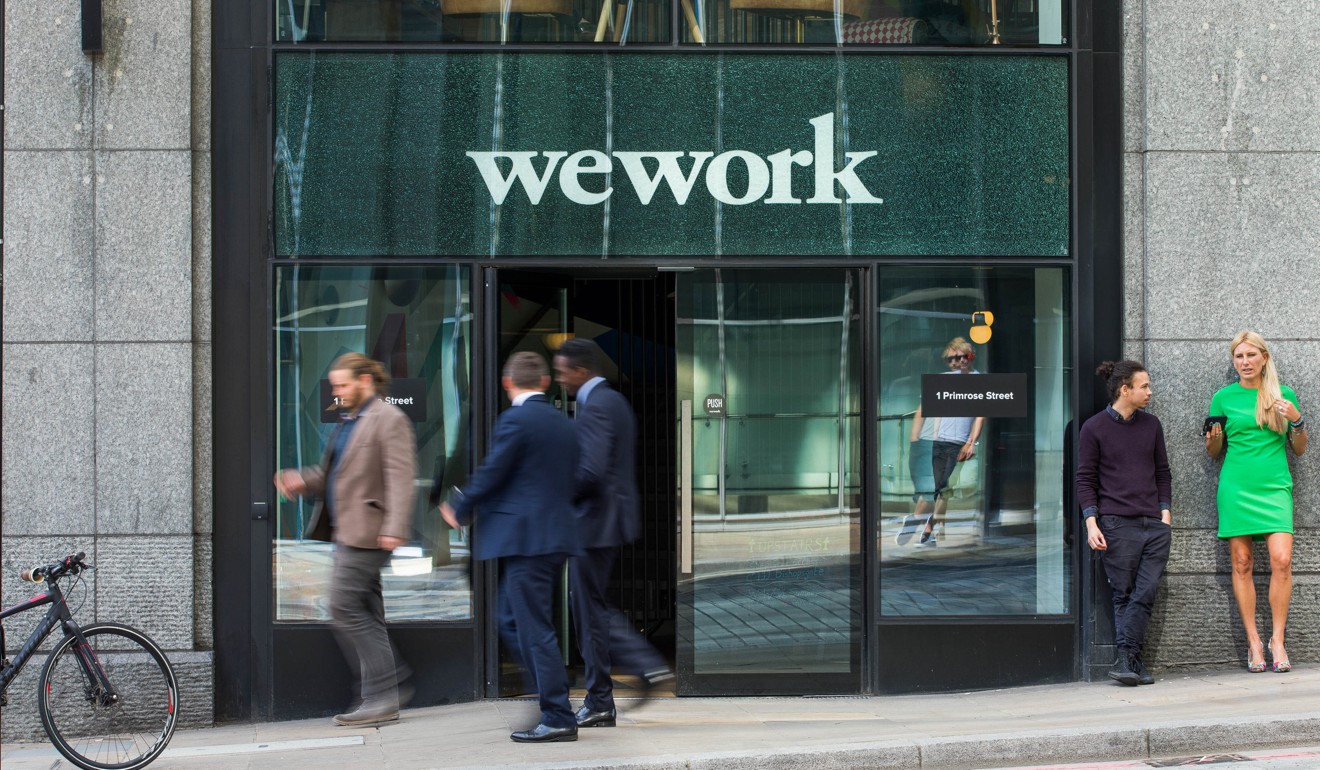
Co-working space operator Soho China targets Hong Kong IPO next year as it expands in the mainland
Soho China, one of the country’s largest commercial property companies, aims to list its co-working space business in Hong Kong next year, according to its chairman Pan Shiyi.
“We will seek to list next year,” Pan Shiyi, Soho’s chairman said at a press conference on Wednesday to announce 3Q’s expansion plans.
He said 3Q has opened projects in Chengdu, Chongqing and Shenzhen, and is expanding in Beijing and Shanghai.
Soho 3Q has expanded quickly in first and second-tier cities since its debut in 2015. The number of seats has grown from 26,000 in 2017 to more than 30,000 currently, and expects to exceed its target of 50,000 by the end of this year.

It also signed cooperation agreements with China Merchants Bank and JD Cloud, the cloud services unit of the country’s second-largest e-commerce site JD.com, to provide better services to its tenants.
Pan said 3Q wants to sign up more big companies to broaden its client base.
“More established tenants mean higher and more stable occupancy rate, as start-ups come and go too fast,” he said, adding that 3Q expects the average occupancy rate stands to increase from 88 per cent, as it customises office space and services for big companies.
Soho 3Q faces stiff competition from fast-expanding domestic rivals such as UCommune and Kr Space, as well as international giant WeWork, which acquired Naked Hub in April.
Through its acquisition of smaller players, UCommune has grown to become the largest co-working space operator in China, with 160 projects in 35 mainland and overseas cities. 3Q, by comparison, has 30 projects in seven Chinese cities.

Pan said unlike most venture capital-backed co-working operators, who are relentlessly pursuing scale, for 3Q profitability is paramount.
“We wouldn’t do a new project if we see no hope of profit. The cash-burning model is similar to picking up a bunch of flowers. Without roots it would wither away in a few days. Those start-ups that have relied on round after round of fundraising are the ones that most likely lack a viable profit model,” he said, taking a jab at Ucommune.
Ucommune has completed more than 10 rounds of fundraising valuing it about 11 billion yuan (US$1.72 billion). The company said in May that it would seek a listing in Hong Kong in two to three years.
Beijing-based Kr Space is also working on a new round of financing, which it hopes to complete next month and take its valuation to US$1.3 billion.
3Q has not received any external financing, making it difficult to pin down its valuation.
China’s vast second-tier cities have provided expansion opportunities for co-working business, but Pan urged caution, saying that he has turned down 80 per cent of the offers from landlords.

“In Wuhan and Changsha over half of the offices are not occupied. We could cooperate with landlords there but would not necessarily invest our own money,” Pan said.
Joe Zhou, head of research at JLL China, said Soho 3Q’s control over costs made achieving profitability easier. “But a downside of the cost control is that it comes at the expense of tenants’ experience,” adding that venture capital-backed operators’ obsession with expansion, mainly through M&A and franchising, could also compromise service standards.
“They should learn from WeWork, which has increased it revenue sources from a variety of services to tenants, and rent is just one of them.”

